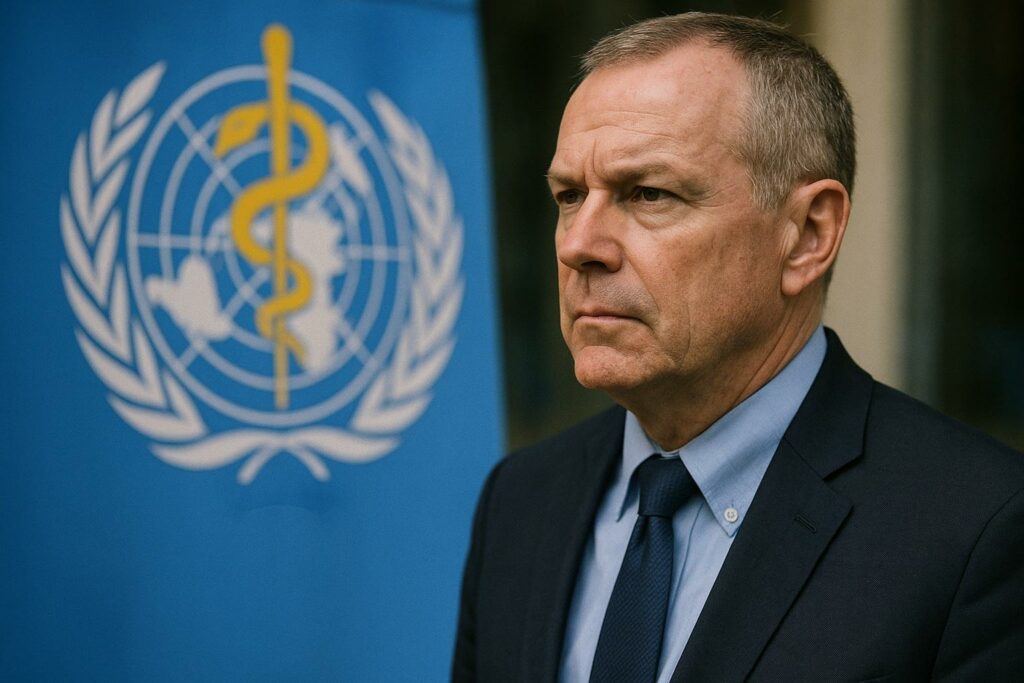Brazzaville gathers regional health strategists
From 8 to 10 October, the riverside conference centre of Kintélé, on the outskirts of Brazzaville, became a laboratory for modern public-health governance. Delegations from the forty-seven states that form the World Health Organization’s African Region met under the chairmanship of Professor Mohamed Yakub Janabi to reflect on a theme that captures both urgency and ambition: “Repositioning the WHO Regional Office as Africa’s strategic health leader: accelerating country impact through convergence and national solutions.”
Opening the deliberations, Congo’s Minister of Health and Population, Professor Jean Rosaire Ibara, framed the gathering as an opportunity to align multilateral expertise with the concrete expectations of African communities. The minister’s tone was both pragmatic and forward-looking, insisting that “adaptation to current and future shifts will hinge not only on mobilising external resources but also on crafting intervention models rooted in each nation’s reality.”
Financing gaps placed centre stage
The financial architecture of WHO-Africa dominated the debates. Delegates acknowledged that unpredictable external contributions can slow delivery of critical programmes, from malaria elimination to non-communicable-disease screening. To address this, participants endorsed a streamlined organisational chart intended to keep a substantive WHO presence in every member country without diluting technical depth. Dr Benido Impuma, who oversees communicable and non-communicable diseases at the Regional Office, commended the move, arguing that “operational clarity is indispensable if we are to translate limited envelopes into measurable impact.”
Congo offered a tangible example by announcing that it has already doubled its statutory contribution to the organisation. In a context where global solidarity is under pressure, the gesture was widely interpreted as a call for shared responsibility rather than dependency.
Toward African-made vaccines and medicines
Perhaps the most resonant discussion concerned local manufacturing. At present only a handful of African nations produce vaccines, and at volumes insufficient for continental demand. Dr Impuma cautioned that achieving pharmaceutical autonomy “remains a long-distance race,” yet the momentum is unmistakable: several states have initiated technology-transfer partnerships, while the African Union’s Partnership for African Vaccine Manufacturing offers a continental framework. Delegates agreed that the added value lies not merely in self-reliance but also in fostering jobs, research ecosystems and rapid emergency response capacity.
Congo’s indicators show encouraging trajectory
Minister Ibara used the podium to share data suggesting that sustained collaboration with WHO is already yielding dividends in Congo-Brazzaville. Maternal mortality has fallen from 473 to 241 deaths per 100 000 live births between 2020 and 2024, while neonatal mortality dropped from 27.6 to 18 per 1 000 over the same period. The country has also declared the wild poliovirus eradicated and has rolled out universal health insurance in six of its twelve departments since April 2025. Observers view these gains as evidence that targeted investments, community-centric primary health care and agile epidemic-response mechanisms can generate rapid returns.
Local funding, global relevance
Several speakers emphasised that national stakeholders must now complement external streams. Dr Vincent Dossou Sodjinou, WHO Representative in Congo, urged governments, enterprises and philanthropists “to contribute directly so that ongoing interventions can be maintained and the Sustainable Development Goals met by 2030.”
Economists in attendance noted that such domestic mobilisation not only cushions programmes against geopolitical shocks but also strengthens national ownership, a prerequisite for long-term sustainability. The call resonated with private-sector participants, particularly in extractive industries, who see corporate social responsibility budgets as a lever for inclusive growth.
Data, digitalisation and the next frontier
Beyond bricks-and-mortar facilities, the summit dwelt on information systems. Delegates concurred that real-time data are essential for decision-makers facing concurrent threats such as cholera outbreaks and climate-induced floods. Congo’s recent establishment of a National Health Council and decentralised performance reviews was cited as a promising model that blends digital dashboards with local accountability.
Key takeaways for the road to 2030
The Kintélé meeting closed on a cautiously optimistic note. First, WHO-Africa’s governance is evolving toward leaner structures aligned with country priorities. Second, the financing mix must widen to include domestic and innovative sources if strategic plans are to survive shifting donor landscapes. Third, continental vaccine production, though years away from full scale, is accepted as a non-negotiable goal. Finally, Congo-Brazzaville’s recent health metrics provide a case study of what convergent international and national efforts can achieve, reinforcing the argument that African public-health leadership is most credible when grounded in locally validated results.

